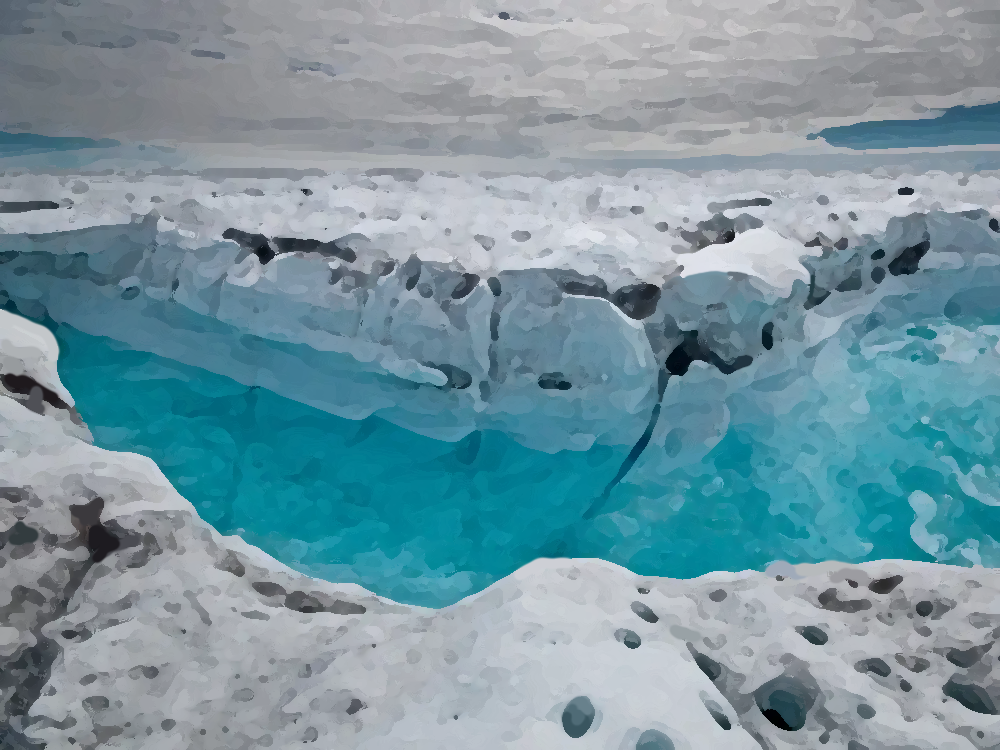
For the first time on record, rain fell at the summit of Greenland—normally a place of snowfall—signaling a significant climate event. Located about two miles above sea level, the summit experienced temperatures above freezing, leading to an unprecedented rain event during which 7 billion tons of water were deposited on the ice sheet. This amount of water could fill Washington, DC’s Reflecting Pool nearly 250,000 times. According to the National Snow and Ice Data Center, this was the heaviest rainfall on the ice sheet since records began in 1950, and the ice mass lost on that Sunday was seven times higher than the average for that time of year.
Senior Research Scientist Ted Scambos at the University of Colorado stated that these changes are evidence of rapid warming in Greenland and are not just a normal fluctuation in climate patterns. The National Science Foundation’s Summit Station, which has been staffed year-round since 1989 to monitor such changes, noted that the majority of the rain fell from Greenland’s southeast coast up to the Summit Station. The increased frequency of unusual weather events such as melting, high winds, and now significant rainfall indicates a shift in what is considered ‘normal’ weather for the region.
This shift is attributed to human-caused climate change, which has led to significant ice loss in Greenland and the Arctic. A major UN climate report highlighted the impact of fossil fuel combustion over the past two decades, contributing to this rapid melting. Studies suggest that since the mid-1990s, Earth has lost approximately 28 trillion tonnes of ice, with the Arctic, including the Greenland ice sheet, being major contributors to this loss.
In recent years, Greenland has witnessed several severe melting events, with one of the most significant occurring in July of the previous year, when over 8.5 billion tons of surface mass were lost in a single day—enough to cover Florida in two inches of water. These events have raised global sea levels and are reshaping our climate in unprecedented ways. As Ted Scambos poignantly puts it, “We are crossing thresholds not seen in millennia, and frankly, this is not going to change until we adjust what we’re doing to the air.”
Sources:
Ramirez, R. (2021, August 19). Rain fell at the normally snowy summit of Greenland for the first time on record. CNN. https://www.cnn.com/2021/08/19/weather/greenland-summit-rain-climate-change/index.html
The views and opinions expressed are those of the authors and do not necessarily reflect nor represent the Earth Chronicles and its editorial board.




